Theatrical performances have helped young people find their voices as virtuosos and build self-worth and confidence. Wang Yuke writes.

Granted, life is often seen as a rich seam to mine for drama, inspiring its twists and turns, threading it into a gripping yarn of multisensory delight. Yet, what’s lesser known is that drama, in equal measure, inspires life in return.
As Mark Peaker, chairman of Shakespeare4All — one of Hong Kong’s leading arts performing groups — puts it, drama performance “inspires to aspire”, affirming its agency in metamorphosing a child through his or her formative years, fostering confidence and learning capacity.
As the crimson velvet curtain parted, Much Ado About Nothing — a thrilling circus-themed extravaganza adapted from Shakespeare’s legendary comedy — unfolded in full bloom in Tuen Mun Town Hall. What amazed the audience was the cohort of actors, all adorned with Elizabethan flourishes, ranging from eight to 18 years of age. These young performers carried the linguistically sophisticated lines, larger-than-life mannerisms, and regally flamboyant costumes with a confidence that radiated brilliance.
READ MORE: Stars rising in the East
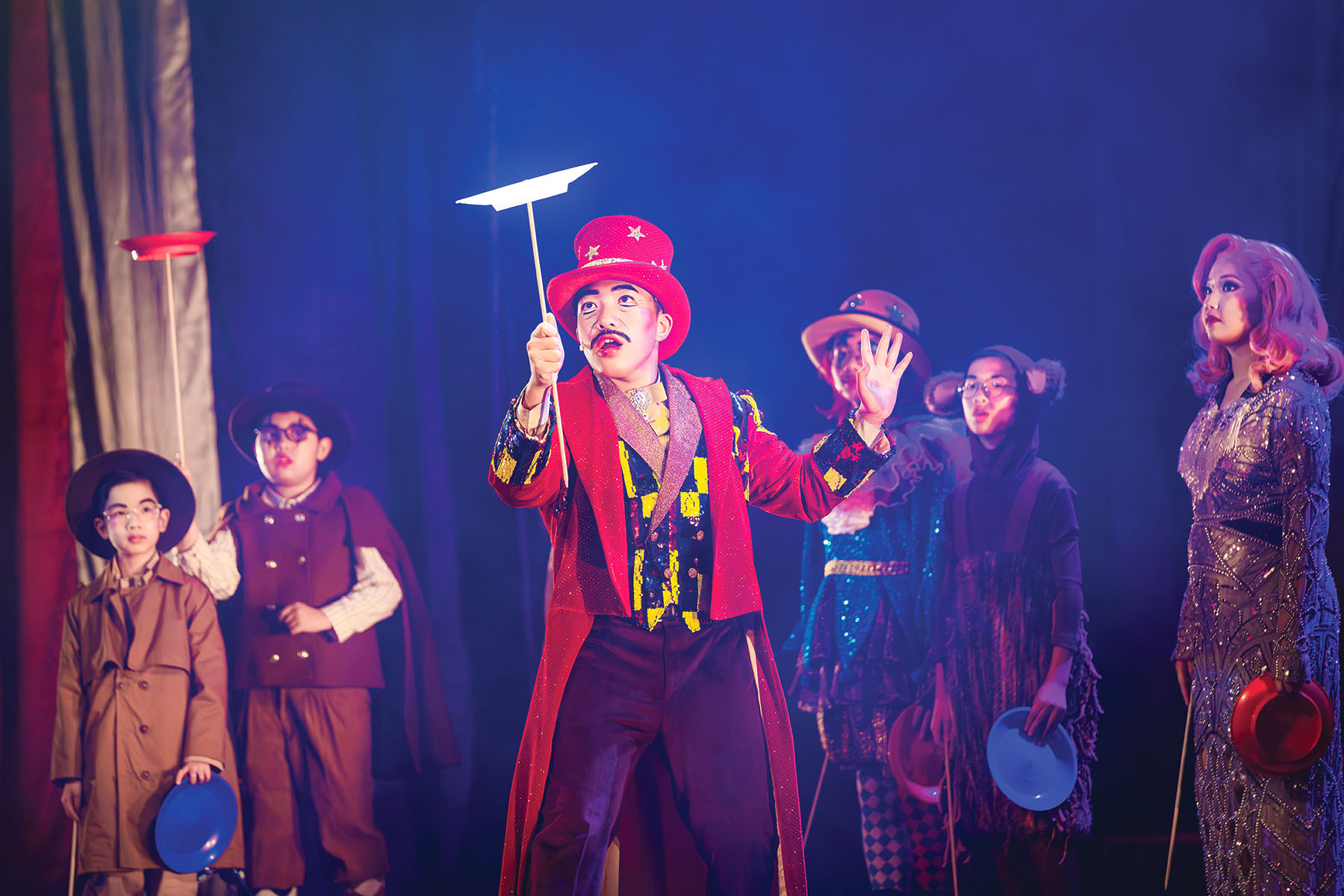
Inspire to transform
Founded in 2003, S4A has harnessed the power of drama to nurture Hong Kong youth’s self-confidence, creativity and English language skills through Shakespearean plays and theatrical productions. The organization has witnessed remarkable transformations — withdrawn souls becoming socially capable, self-conscious children growing into self-assured individuals, those with learning challenges shedding labels, and non-English speakers commanding the stage with assuredness.
It’s noteworthy that S4A’s drama performance has been transformed into a level playing field for all, fostering inclusivity. “Around 70 percent of our participating students come from Band 3 schools or lower socioeconomic backgrounds,” says Peaker.
In the young, jaunty world of drama, the most heartening revelation for participating teens is the transcendence and enlightenment that performance brings, moving the needle in their formative years and beyond. Arthur Chan, who signed up for S4A’s Shakespeare production eight years ago when he was 12, now studies at the prestigious London School of Economics and Political Science. He credits his academic success to the unflinching belief channeled throughout the drama program, rooted in the idea that “you can be the best, trust your aptitude, and dive in”, he enthuses with a spark flickering in his eyes.
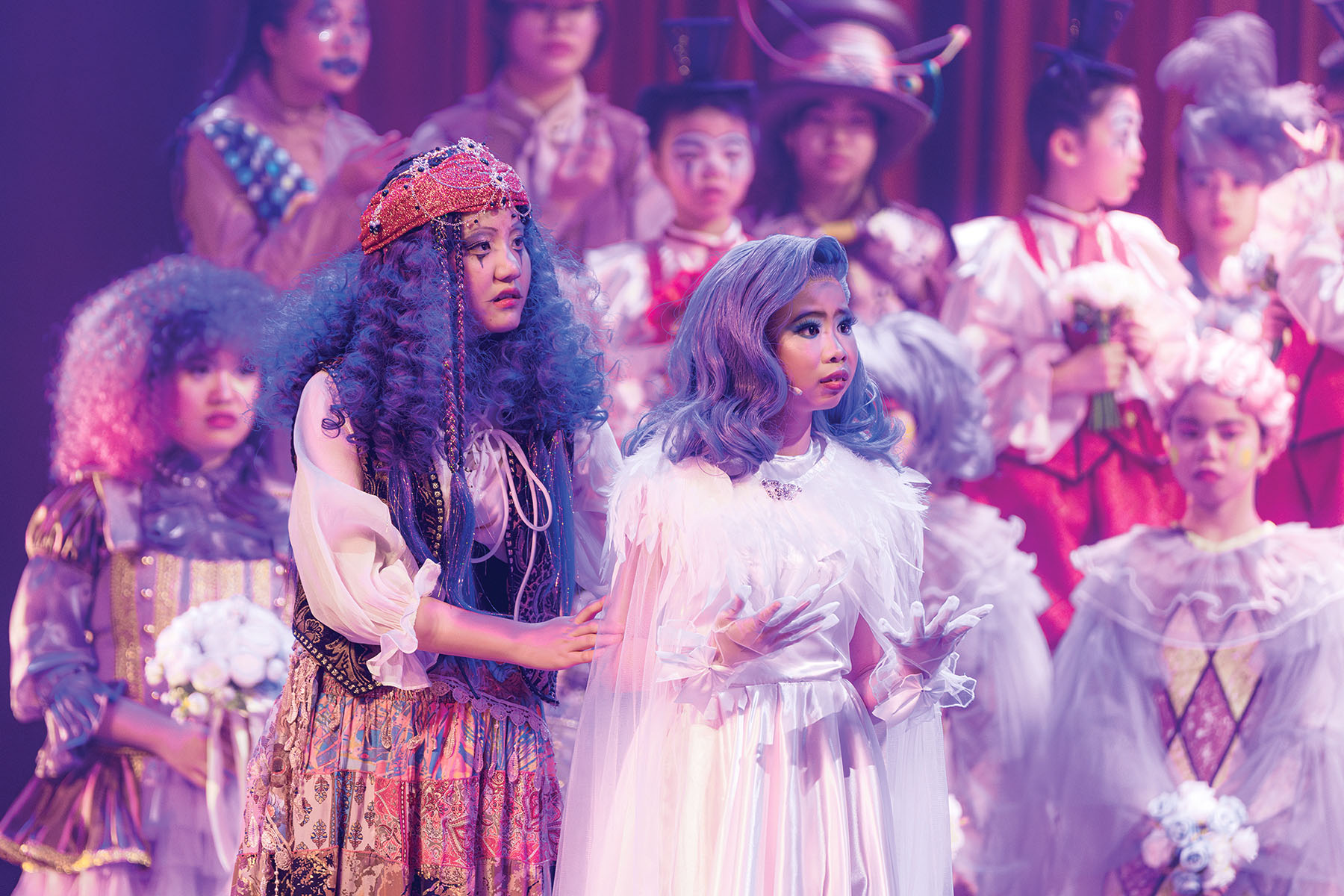
William Shakespeare, often revered as the “Father of Modern English Literature”, has long been held in awe from antiquity to today. His towering intellect and sophisticated wisdom can sometimes cast an image of inaccessibility, with many perceiving his works as formidable, believing they are beyond their intellectual reach. However, to Peaker, it is a sheer misconception.
“If we go back to Shakespeare’s time, the stories he narrated were romantic, comedic or tragic, mirroring the everyday lives of the people,” says Peaker. That, he suggests, is precisely why Shakespeare’s masterpieces remain relevant today — they echo the universal life dynamics of laughter, sadness and love. Only if we cast aside the pedestal that we have placed Shakespeare on, can people of all ages today be viscerally attuned to and identify themselves with his celebrated stories, says Peaker. To him, Shakespeare wrote for average people, with a timeless appeal that evokes the past, resonates the present and projects the future.
Dispelling the aura around Shakespeare and democratizing his literature, as well as the adapted plays, is by no means an attempt to diminish the genius of the master. Instead, when people approach Shakespeare on more equal terms, they find themselves deeply connected to his works, allowing his literature to realize a more enduring reach and influence, says Peaker. Bringing his classic stories to life through adolescents’ fledging emotions and unadorned voices could be the best antidote to the “over-intellectualization” of Shakespeare’s literature, he adds.

To strike the right note for Much Ado About Nothing — a comedy infused with witty banter and sharp humor — the August performance by S4A’s youngsters was set in the whimsical world of a circus. The setting alone packed the play with the playful exuberance that Shakespeare intended. Most importantly, it was reimagined for a sense of relevance and identification to children.
If it’s accessible to children, it shouldn’t be a steep learning curve for most people, making it a great equalizer of Shakespeare’s works.
The circus setting also allows more freedom with costumes and the incorporation of circus acts like juggling, which complement the quippy wit and comedic plot of the story, explains Peaker.
More than just a drama, the S4A iteration of Much Ado About Nothing riffs on the musical numbers by female artistes like Beyonce, Jennifer Lopez, Mariah Carey and Madonna, rendering the show a sensorially expressive delight. This musical interpretation, according to Peaker, stems from two key reasons. The musical addition “allows more opportunity for the entire cast to perform together on stage”, veering away from the avalanche of monologues in the original Shakespeare story, he says. The music also furbishes the linguistically dense performance with more expressiveness, which is “the whole point of Shakespeare’s play — it’s all about expressing yourself,” he adds.
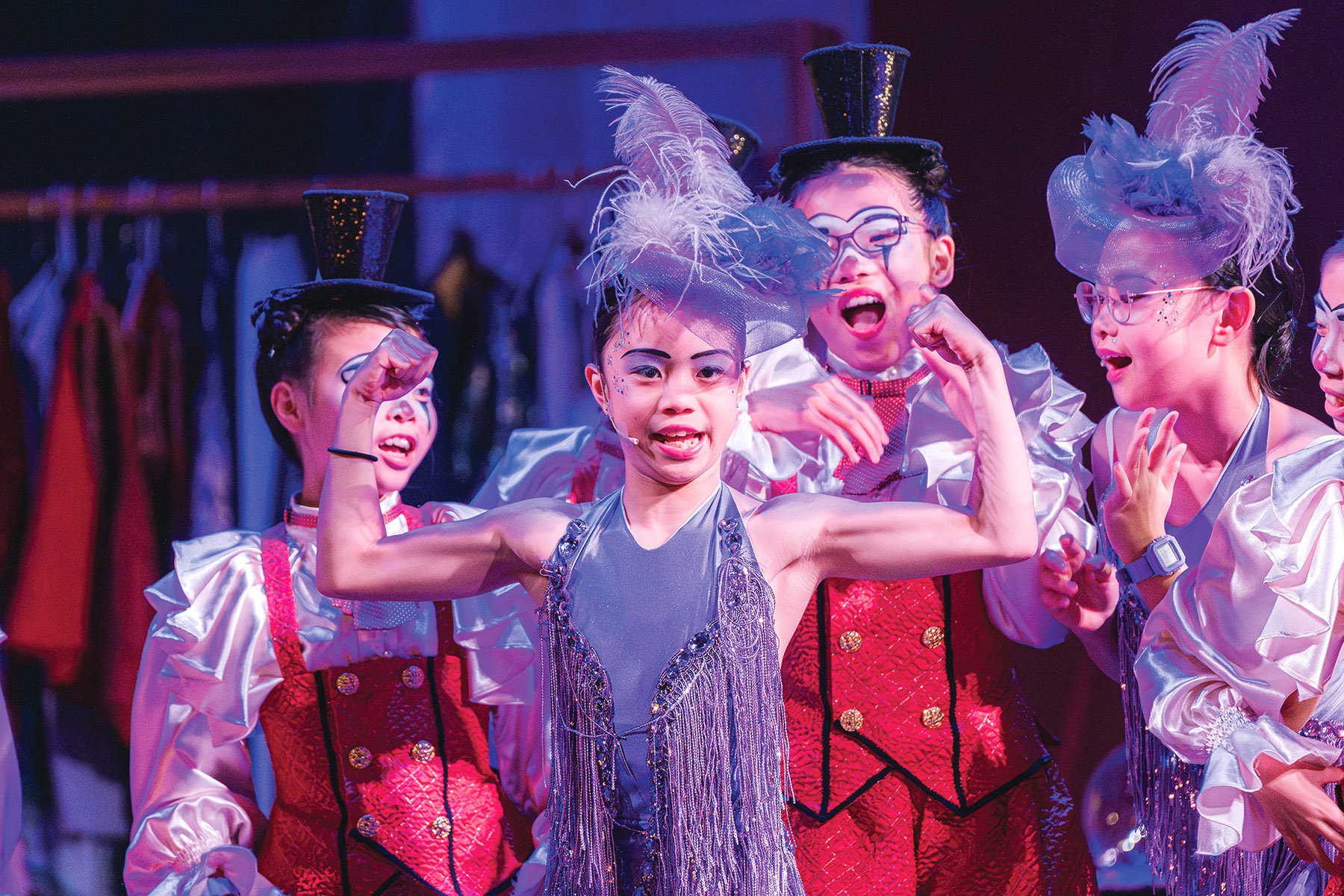
The adaptations are central to the performance, not only to align with Asian culture and heritage, but also to suit the emotional and intellectual capacities of the young actors. For example, the Gala Production 2018 of The Tempest was set in Hong Kong. In addition to shortening the runtime, the young actors were guided through the labyrinth of words that might otherwise seem esoteric to them. “The children playing in Much Ado About Nothing are predominantly from working-class backgrounds, and some attend Band 3 schools, meaning they have limited resources for learning English. Plus, a 12-year-old may not fully grasp the concept of love that the story revolves around,” Peaker explains. “But that’s Shakespeare’s magic — they don’t need to fall in love with anyone but the words!”
Getting the hang of Shakespeare’s singular language flattens the young actors’ emotional learning curve, easing them into the philosophical and emotional plane where his plays stand. Taking Shakespeare’s language in their stride, they become more “demonstrative”, says Peaker, because they embrace and engage with the story with open arms and hearts.
The performance on stage thrives on the concerted, synchronized efforts of the entire cast — a principle especially relevant to the S4A production, where none of the young actors is a virtuoso, and their English and acting abilities vary widely. The idea that teamwork is greater than the sum of its parts is a valuable lesson the participants have come to grasp in their own ways. “Every actor has to remember their lines. But, if they only focus on their part, ignoring the lines and emotions of the person they’re interacting with, the performance would be stilted,” says Peaker, reflecting on how the actors have learned the hard way. He notes that they eventually feel the need to break out of their own bubble of “script and ego”, realizing that if they’re single-mindedly preoccupied with their own share of work, the entire play would crumble due to the lack of emotional cohesion.
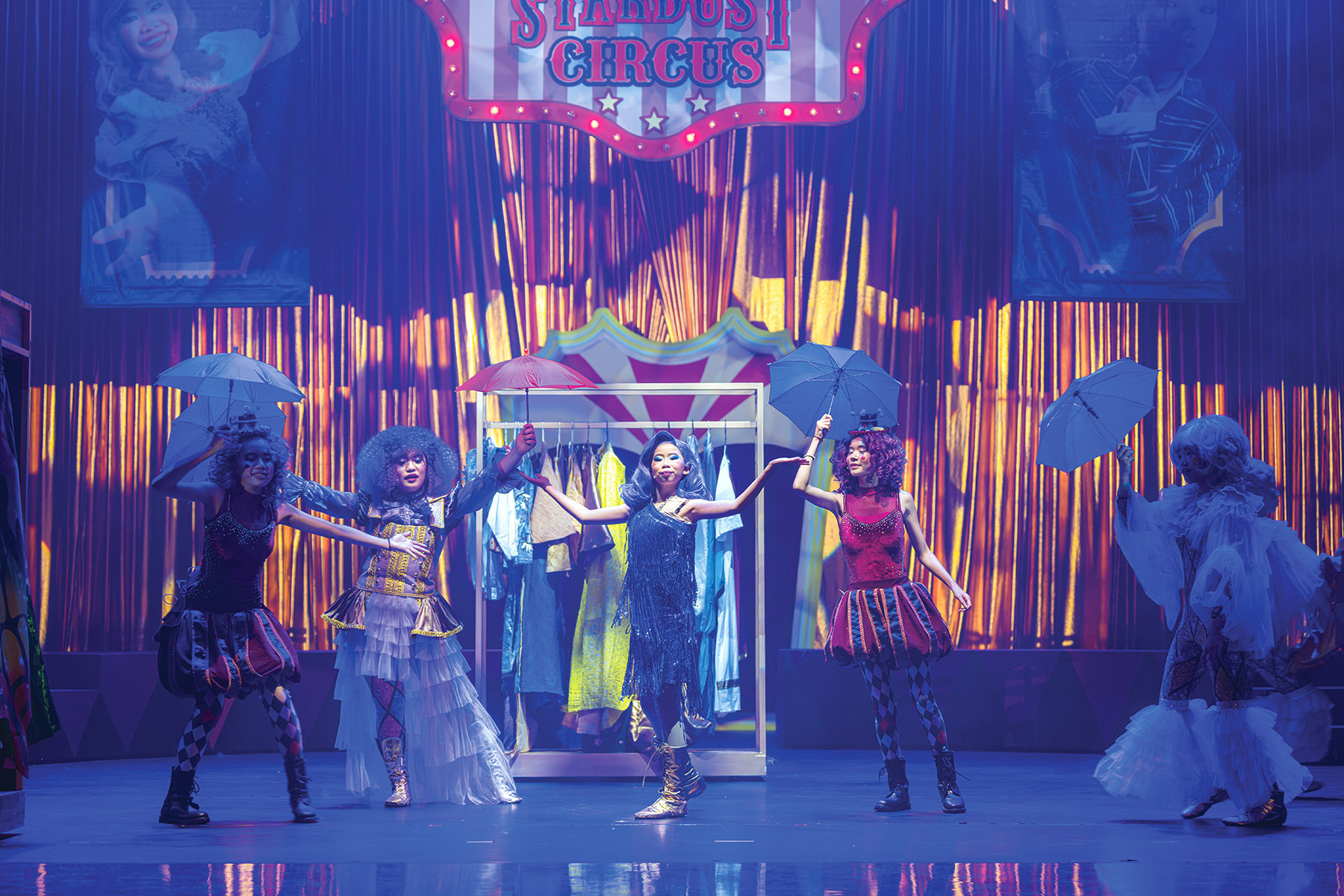
No one is expected to upstage others in S4A, Peaker adds. “Everyone’s equal, whether playing a lead role or a cameo. Everybody stands on the same ground, striving for a common goal — conveying a story written by Shakespeare in a way that resonates with a modern audience.”
Improving young people’s English is just the tip of the iceberg of the rewarding bundle they gain. Alongside their trek through the steep learning curve of sophisticated English expression and delivery, they gain the ability to learn and build confidence in mastering new skills, creating a profound ripple effect permeating through other slices of their life.
“Excelling at one thing sparks their overall confidence in other things,” Peaker says. “I remember once I got a letter from the father of a student. He said, initially, he was hesitant about his son’s audition: ‘I didn’t want my son to be upset again (after some setbacks in the past). He might find it too daunting.’ But his son insisted, snagged a major role and delivered a stellar performance. The father said after the performance with flying colors, not only did his son’s English take off, all his other subjects began to look up too!”
Remembering the verbose, lengthy script like the back of their hand is nothing short of Herculean for the young, inexperienced actors, but the “built-up confidence, pride in being part of the team” and the self-talk of “I can’t let my team down” motivated everyone to nail it in rehearsal and on stage, says Peaker.
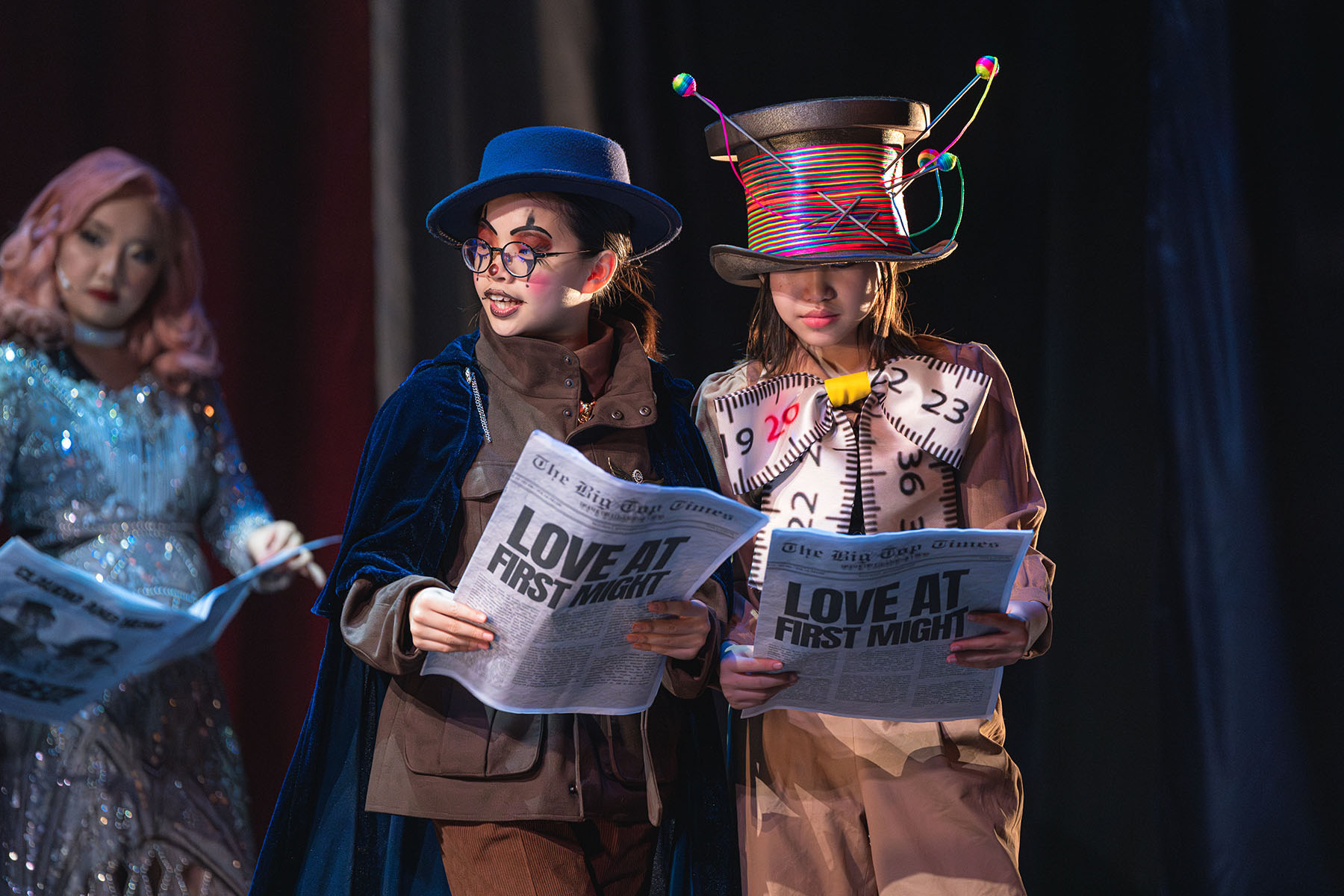
Push beyond limits
When cast as Macbeth in the titular gala production, Arthur Chan reminisces with both gusto and nostalgia about how the director kept urging him: “‘Give me more! I think you can deliver more!’ It was her adamant, unconditional faith in me that prodded me through the self-exploration journey where my assumed limitations gave way to unlocked potentials,” he says.
His brother, Oliver Chan, who is also currently pursuing his bachelor’s degree in London, is a true embodiment of “coming out of the shy shell” to shine. “I used to be extremely unconfident,” he says. “But when I joined the S4A program, I was assigned a major role in a play. I couldn’t afford to stay not being confident because everyone — my fellow actors, friends and the assistant directors — had high expectations of me. Their unwavering faith in my ability pushed me to rise to the challenge and meet their standards.” Over time, this external confidence began to seep into his internal composure, transforming him from within.
The stage created is a “safe valve”, as Arthur Chan calls it — a sanctuary for artistic articulation, capability enrichment and social skill development — stripped of judgment, rigid answers, and the caste system so prevalent in the real world. “We were taught both onstage and offstage how to navigate all sorts of social dynamics,” he says, reflecting on the close-knit, but occasionally tense community.
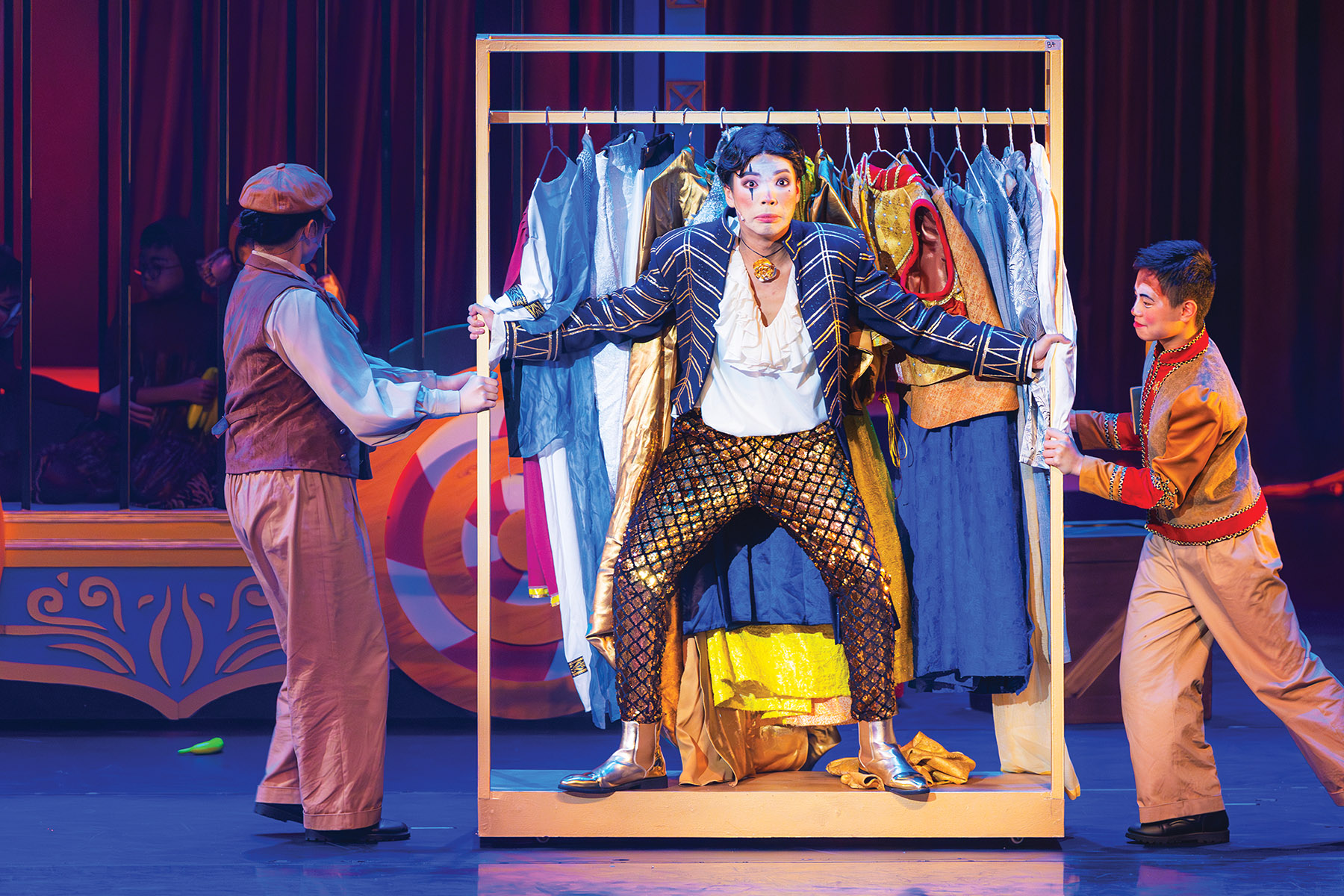
On the surface, the program revolves around theatrical performance. But, at its core, it all boils down to boundary pushing of oneself and discovery of every individual’s astonishingly untapped potential.
“This girl, from Hong Kong, who looks like Adele, was the Juliet in Romeo and Juliet (S4A’s 2017 production). She’s living with a learning disability,” Peaker says, clearly amazed, as he flips through the photos.
“This young man, I think he’s 14, crossed the border from Shenzhen. He could barely speak English at first. How did he catch up? He wrote all the English words in Chinese and then memorized them in English. By the end of the summer, he was absolutely proud that he could speak Shakespeare’s English, and his story isn’t unique,” he adds.
ALSO READ: Books, films and everything in between
While Arthur Chan has had to “retire” from the acting troupe as he was turning 17, he retreated to behind the scenes as a volunteer, helping younger actors to find their “voice” — artistically, socially and individually — within the inclusive Shakespeare globe. “While volunteering throughout the production, I saw a reflection of myself — the challenges I had once battled — in the younger actors,” he says. “Sometimes, they felt overwhelmed and disheartened. Seeing their struggles reminded me of my own journey, and I felt proud to be confident, mature and empathetic enough to support and ground them. It was a profound discovery of my own self-worth in my personal journey.”
Young actors come and go, yet circle back to retell, refine and rekindle their fervor — not just for Shakespeare’s drama, but for the blossoming self-confidence that continues to weave through their lives’ narratives.


